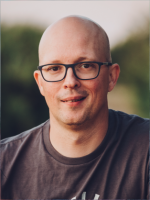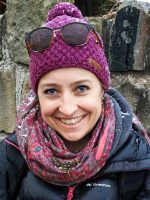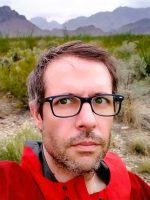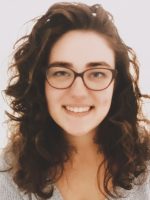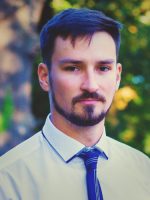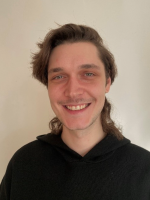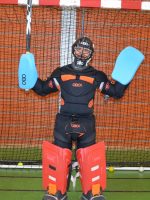LIttoral ENvironnement et Sociétés (LIENSs), UMR 7266 CNRS, La Rochelle Université, France.
Mathieu Giraudeau
CNRS researcher - co-leader
Orsolya Vincze
CNRS researcher - co-leader
Orsolya is CNRS researcher and co-leader of the Widlife Cancer Evolution Research Group (WiCanE). Her research focuses on the intricate evolution of physiological systems and life histories across diverse animal species.
She is particularly interested in the immune system, oxidative physiology and mechanisms of somatic maintenance, with a keen focus on cancer resistance. She study how these physiological systems are connected to each other and how environmental and internal biological processes contribute to their variability across species, sexes and age classes. Orsolya is currently also exploring how the gut microbiome integrates with these host physiological and ageing phenotypes. In particular, she is exploring the interaction between the microbiome, immunity and cancer predisposition across the tree of life.
Stève Desaivre
Lab and project manager
Stève has an MSc in animal behavior with numerous experiences working and traveling internationally. He worked in behavioral ecology, neuroendocrinology, and neuroscience related projects involving varied species: monkeys, foxes, birds (house finches, pelicans, great tits), treefrogs, rats & mice.
Steve has been a lab manager in the USA for 10 years (The University of Notre Dame and The University of Texas at Austin) before joining the Wildlife Cancer Evolution Research Group in 2024. Stève oversees the management and coordination of the different research projects as well develops the cell and macomas culture at the LIENSs.
Jennifer Saliba
Post-doctoral researcher LIENSs
Jennifer has a doctorate in oncology and immunology and worked for three years as a postdoc on a research project focusing on the biological properties of marine sugars. In the context of cancer, Jennifer evaluated marine oligosaccharides in free forms or in the form of iron oxide nanoparticles functionalized with inhibitory sulfated oligosaccharides.
Her research interests lie at the interface between immuno-oncology and cancer resistance, particularly the modulation of immune responses within the tumor microenvironment, the mechanisms of escape from immunosurveillance and the checkpoints that promote, or on the contrary limit, tumor progression. From a comparative evolutionary biology perspective, Jennifer is interested in exploring mechanisms that vary between species to better understand the bases of natural resistance to cancer. In the long term, the objective is to identify new preventive and therapeutic avenues for cancer allowing translational transfer to humans.
Tamás Malkócs
Post-doctoral researcher LIENSs & Macha Nikolski’s group
Tamás is a postdoctoral researcher in the WiCanE group at LIENSs and in Macha Nikolski’s group (CBiB) at the IBGC in Bordeaux, working on the COVER ANR project. His research investigates how genes located on sex chromosomes contribute to sex-specific differences in cancer mortality risk in mammals and birds—two groups with contrasting sex determination systems. Tamás is also involved in analyzing the transcriptomic responses of cell cultures from cancer-resistant species to DNA-damaging radiation.
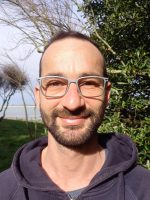
JUSTUS HAGEMANN
Post-doctoral researcher LIENSs & Wellcome Sanger Institute
Justus is a postdoctoral researcher in the WiCanE group at LIENSs in La Rochelle and Alex Cagan’s group at the Wellcome Sanger Institute in Cambridge. His research explores the relationships between somatic mutation rates/signatures, cancer prevalence, and key life-history traits such as body size, longevity, diet, and reproductive strategy across mammals. By leveraging mammalian diversity, his project aims to uncover the evolutionary and biological underpinnings of mutational processes. Justus acquired his PhD at the University of Potsdam, where he used museum specimens to investigate the molecular evolution of sengis (Macroscelidea), a mammalian order within Afrotheria.
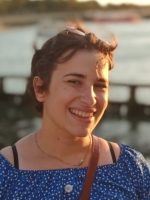
Louise Maille
PHD student LIENSs
Louise is a PhD student focusing on cancer resistance mechanisms in wild mammals. She has an MSc in evolutionary biology from Sorbonne University, and she currently studies the relationships between genomic features (such as genome size or gene duplications) and cancer. In parallel, Louise is exploring the responses of cell cultures from cancer-resistant animals to radiation, intending to uncover novel resistance mechanisms.

Crystal MORIN
PHD student LIENSs & Beauval Nature
Crystal MORIN thesis focuses on cancer resistance and prevalences variability across wildlife, by merging data management, biology and evolutionary ecology. Using samples and data from one of the biggest zoo in Europe and its international network, her research aims at identifying new cancer prevalence predictors and/or cancer resistance mechanisms. She is also interested in the link between organs susceptibility to cancer and the species way of life (diet, reproduction, environnement…).
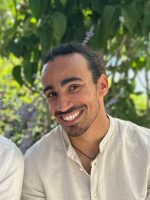
SIMON MALLET
PHD student LIENSs & Cell Environnement
Simon is a PhD student working on a CIFRE thesis in collaboration with Cell Environnement on the study of DNA repair mechanisms in relation to cancer resistance in wildlife. He has an engineering degree in Biotechnology and is interested in the cellular and molecular mechanisms of cancer resistance. The aim of his research is to study the response of cell cultures from animals known to be resistant to cancer following exposure to DNA-damaging radiation. The discovery of new DNA repair mechanisms will open up new avenues for the development of cancer prevention and therapy tools.
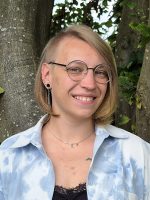
LEA ALEXANDRA Mascherrek
PHD student LIENSs & Immunoconcept Bordeaux
LIENSs laboratory web page
Lea is a PhD student exploring the conditions of cancer development across the different species that make up the tree of life. By laying a specific focus on marine invertebrates, she will avoid the anthropo- and mammal-centric bias of traditional cancer research, allowing her to reconstruct the phenomenon from its origin. She obtained her Master of Science in Biology with a specialization in Developmental Biology at the University of Osnabrück, while she is finishing her Master of Arts in Philosophy of Science at the University of Münster in order to complete the path she had chosen when she started her academic career by studying a dual major Bachelor in biology and philosophy. Due to the topics of her two Master’s thesis, she has a strong background in molecular genetics and conceptual analysis.
Lea is codirected by Ingrid Arnaudin (LIENSs) and Thomas Pradeu (Immunoconcept Bordeaux), and scientifically supported by Mathieu Giraudeau, Orsolya Vincze and Bertrand Daignan-Fornier (IBGC Bordeaux)
Anthony ANDRIEU
PhD student LIENSs & University of Gdańsk, Poland
Anthony is a graduate student in biology, specializing in medical biology at the University of Gdańsk in Poland. His academic journey has been marked by a dedicated focus on expanding understanding in human cancer pathophysiology and potential treatment strategies. Currently, he is a doctoral candidate at both the University of Gdansk and the University of La Rochelle, where he is engaged in a research program aimed at exploring the etiology of transmissible neoplasia in marine bivalves (BTN), with a specific emphasis on the influence of environmental factors on its progression and dissemination.
BENJAMIN MUSNIER
Research Engineer LIENSs
Benjamin obtained his diploma in « génie physique » applied to the biomedical field from INSA Toulouse in 2013. Since then he has worked in many laboratories in France as the physicist surrounded by biologists. He first started working in projects where he developed innovative detection methods for biological questions. Since 2021 he works on project support of the technical plateforms (cell culture, microscopy and flow cytometry) of the LIENSs laboratory and brings his expertise in those domains to the WiCanE research projets.
Benjamin is also involved in the HSE and ecological transition of the LIENSs laboratory.
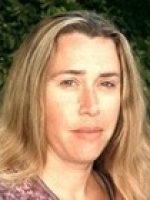
Valérie HUET
Assistant engineer LIENSs
Valérie is a Research Assistant at the LIENSs laboratory and she is associated with the WiCanE research group. She is running lab analyses for the WiCanE group and performs experiments for the marine bivalve transmissible cancer project.


